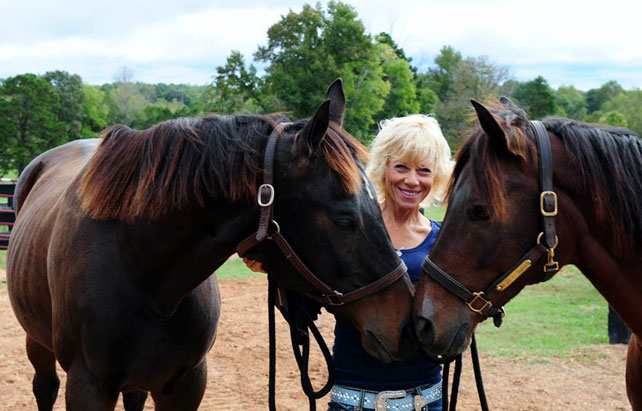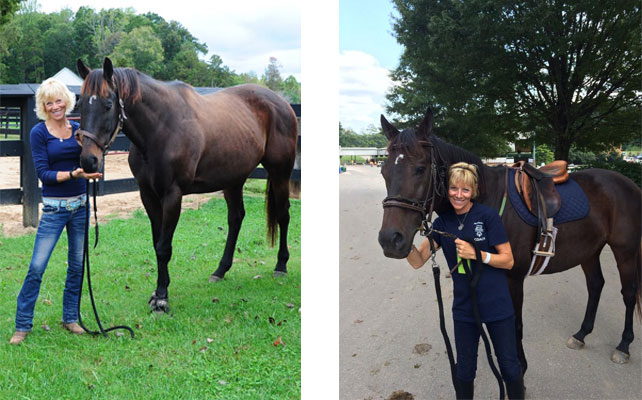Saddling Up: Therapeutic Horseback Riding for Children and Adults with Disabilities and Special Needs

Dr. Wendy Schonfeld has spent a lifetime fascinated by horses. As a teen, the Bronx native would take three buses to stables located off Pelham Bay Parkway near City Island. She would clean the stalls and care for the stables’ “residents” just so she could be near the horses and ride them. Three decades later, Dr. Schonfeld is still going to great lengths to be around her four-legged friends. Only now she’s working with horses to help children and adults in ways that sometimes seem to defy science.
Dr. Schonfeld is a certified instructor of the Professional Association of Therapeutic Horsemanship International (PATH Intl.) and founded the RideAbility Therapeutic Riding Center outside Charlotte, North Carolina three years ago. Before moving south, she was a chiropractor for 25 years and honed her PATH skills at HorseAbility in Long Island. She is also an Advanced Coach for the Equestrian Special Olympics.
Dr. Schonfeld works with children – as well as adults – with psychological, physical social and emotional disabilities and special needs, including Autism, cognitive challenges, learning and developmental disabilities, Multiple Sclerosis, Cerebral Palsy, sensory integration disorder and brain injuries.
So how exactly is horseback riding therapeutic? It can help a child’s core strength, balance and motor skills. Learning horsemanship skills can aid cognitive development (including awareness and decision-making). It can also teach social skills and build self-esteem. “If you can control a 1,300-pound animal, you’ll definitely experience a boost in your self-confidence,” says Dr. Schonfeld.
She is passionate when explaining the benefits of equestrian therapeutic horseback riding, noting, “We have nonverbal kids where the horse just unlocks something magical and these kids start talking. A child with Cerebral Palsy will be able to lift her neck and trunk for the first time. It’s beautiful to watch. It’s great to be part of their journeys.”
Dr. Schonfeld adds, “We have children and adults who can’t walk, but when they get on a horse, they’re just like everyone else. They can ride and tell the horse where to go.” They acquire a sense of independence.
A child with Autism can develop socialization skills as she bonds with the horse and learns about loyalty, trust, respect and problem solving. The child’s also able to work on these skills with the three “walkers” (volunteers) who make sure each rider remains secure in the saddle. Absent is the intimidation factor of a larger social setting.
Dr. Schonfeld specially trains her volunteers. And not just any horse will do. The horses must go through a screening process and possess a certain temperament – able to deal with a child who might easily become frustrated, throw a temper tantrum, or become unbalanced in the saddle.
Dr. Schonfeld takes only horses she knows. Many are donated by owners who can’t or don’t want to care for them any longer, or whose horses are older and finished with their competition careers. “It’s a great second career for a horse,” jokes Dr. Schonfeld.
RideAbility is an official training center for the North Carolina Special Olympics. It’s a 501(c)(3) that relies almost entirely on volunteers. More than half the riders are on some type of financial support. But Dr. Schonfeld is undeterred. “My hope is that no family will ever be turned away. We are always looking for wonderful people to sponsor a rider who is unable to pay for services.”
If you’d like to donate to RideAbility, sponsor a horse or finance a scholarship for a child, please click here.










